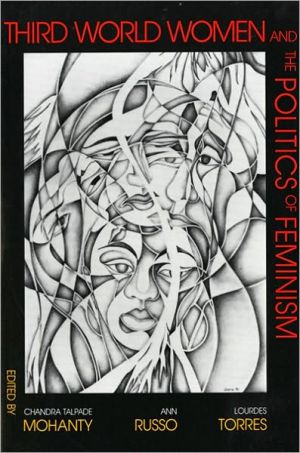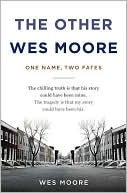Third World Women and the Politics of Feminism
"The essays are provocative and enhance knowledge of Third World women’s issues. Highly recommended... "—Choice\ "... the book challenges assumptions and pushes historic and geographical boundaries that must be altered if women of all colors are to win the struggles thrust upon us by the ‘new world order’ of the 1990s." —New Directions for Women\ "This surely is a book for anyone trying to comprehend the ways sexism fuels racism in a post-colonial, post-Cold War world that remains dangerous...
Search in google:
"The essays are provocative and enhance knowledge of Third World women's issues. Highly recommended... " — Choice"... the book challenges assumptions and pushes historic and geographical boundaries that must be altered if women of all colors are to win the struggles thrust upon us by the 'new world order' of the 1990s." — New Directions for Women"This surely is a book for anyone trying to comprehend the ways sexism fuels racism in a post-colonial, post-Cold War world that remains dangerous for most women." — Cynthia H. Enloe"... provocative analyses of the simultaneous oppressions of race, class, gender and sexuality... a powerful collection." — Gloria Anzaldúa"... propels third world feminist perspectives from the periphery to the cutting edge of feminist theory in the 1990s." — Aihwa Ong"... a carefully presented wealth of much-needed information." — Audre Lorde"... it is a significant book." — The Bloomsbury Review"... excellent... The nondoctrinaire approach to the Third World and to feminism in general is refreshing and compelling." — World Literature Today"... an excellent collection of essays examining 'Third World' feminism." — The Year's Work in Critical and Cultural TheoryThese essays document the debates, conflicts, and contradictions among those engaged in developing third world feminist theory and politics. Contributors: Evelyne Accad, M. Jacqui Alexander, Carmen Barroso, Cristina Bruschini, Rey Chow, Juanita Diaz-Cotto, Angela Gilliam, Faye V. Harrison, Cheryl Johnson-Odim, Chandra Talpade Mohanty, Ann Russo, Barbara Smith, Nayereh Tohidi, Lourdes Torres, Cheryl L. West, & Nellie Wong. Publishers Weekly Primarily of interest to academics, this collection of 15 essays offers examples of current feminist perspectives on race, class and Third World issues, and thoughts on appropriate approaches to these subjects. M. Jacqui Alexander's ``Redrafting Morality'' examines Trinidad and Togabo's 1986 Sexual Offenses Bill, finding that government has a ``major stake in promoting and defending conjugal masculinity'' and in subordinating women by recognizing them only as ``wives.'' In ``Gender and Islamic Fundamentalism,'' Nayereh Tohidi notes how the position of Iranian women has deteriorated since 1979--despite their active participation in the uprising against the Shah--and concludes that `` the women's question should not be relegated to the days after the revolutionital in text. .'' Russo, in ``We Cannot Live Without Our Lives,'' argues that white feminists should not dismiss racism as ``their'' problem but ``work with women of color as peers . . . which means we must give up sole power and control of feminist organizations, political agendas, and theoretical perspectives.'' The editors are academics who specialize in feminism and women's issues. Photos not seen by PW . (June)
\ Publishers Weekly - Publisher's Weekly\ Primarily of interest to academics, this collection of 15 essays offers examples of current feminist perspectives on race, class and Third World issues, and thoughts on appropriate approaches to these subjects. M. Jacqui Alexander's ``Redrafting Morality'' examines Trinidad and Togabo's 1986 Sexual Offenses Bill, finding that government has a ``major stake in promoting and defending conjugal masculinity'' and in subordinating women by recognizing them only as ``wives.'' In ``Gender and Islamic Fundamentalism,'' Nayereh Tohidi notes how the position of Iranian women has deteriorated since 1979--despite their active participation in the uprising against the Shah--and concludes that `` the women's question should not be relegated to the days after the revolutionital in text. .'' Russo, in ``We Cannot Live Without Our Lives,'' argues that white feminists should not dismiss racism as ``their'' problem but ``work with women of color as peers . . . which means we must give up sole power and control of feminist organizations, political agendas, and theoretical perspectives.'' The editors are academics who specialize in feminism and women's issues. Photos not seen by PW . (June)\ \








